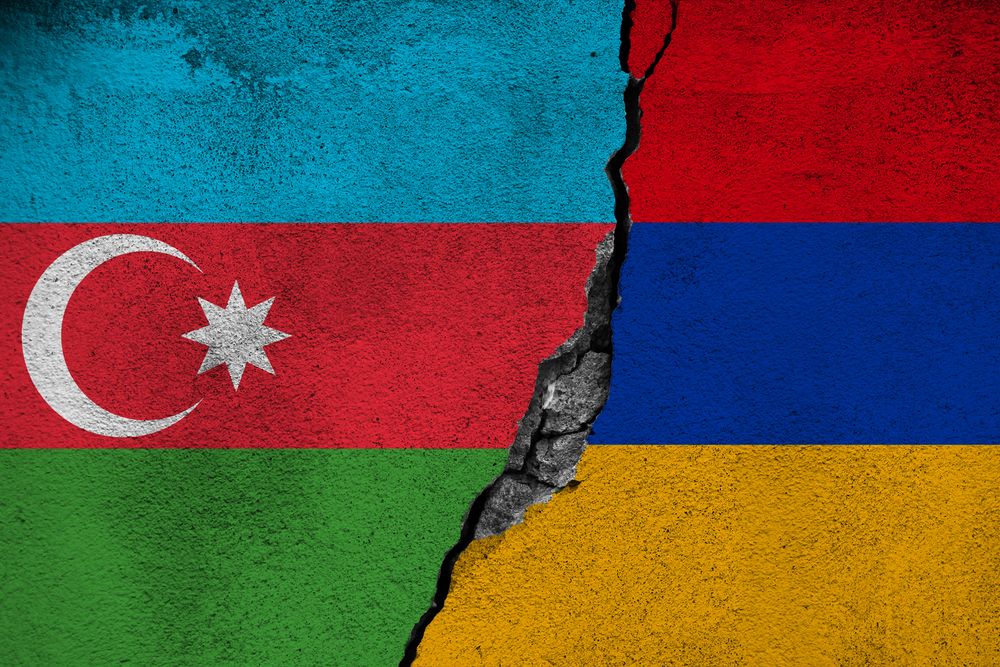Foreign policy says path to peace may be quite realistic

While fighting rages in the Middle East and Ukraine, another region may finally be on the verge of long-awaited peace. We are talking about the South Caucasus, where Armenia and Azerbaijan are taking diplomatic steps towards a peace agreement following Baku's victory in the conflict over the Garabagh region. However, conflicts do not operate in isolation from each other. They involve the same external players, including Iran, Turkiye, Russia, the EU and the US. This complicates the peace process, forcing the sides to manoeuvre on interconnected tracks, Azernews reports.
This is according to an article by Eugene Chausovsky, a researcher at the Newlines Institute, a think tank for strategy and policy, published in the American journal Foreign Policy.
The author of the article argues that the path to peace may be quite realistic.
"On October 26, at a summit in Tbilisi, Armenian Prime Minister Nikol Pashinyan announced the "Crossroads of Peace" initiative, which envisages the creation of transport links with neighbouring countries Georgia, Iran, Turkiye and Azerbaijan. The inclusion of the latter two is most notable given that Baku launched a military operation in Garabagh in September, thus ensuring full control over the region.
The South Caucasus is one of those regions of the world where ties between states are limited. This is due to both geographical and political factors. The mountainous terrain, being on the periphery of major powers, as well as numerous local and regional conflicts hinder the development of trade and communications. Armenia's borders with Azerbaijan and Turkiye have long been closed due to the Garabagh dispute, giving Yerevan only limited trade links with Tbilisi and, respectively, Moscow in the north and Tehran in the south. At the same time, Baku's ties with Ankara and even with its own territory, Nakhchivan, are also limited, and energy exports to the West are carried out exclusively through Georgia," Chausovsky writes.
As the Foreign Policy analyst notes, the question of control over Garabagh is now no longer relevant:
"The vast majority of the region's ethnic Armenian residents have left for Armenia, and the region's self-proclaimed 'government' has announced that it will cease to exist on 1 January. As difficult as it was for Armenians, this removed one of the most serious obstacles to peace between Armenia and Azerbaijan, especially since Yerevan's main security patron, Moscow, has made it clear that it is not going to stand up for Armenians on the Garabagh issue," the author of the article stresses.
Chausovsky believes that this has opened up opportunities for both peace and the long-awaited economic ties that the two countries are trying to forge.
"Previously, these efforts were undertaken separately and often contradicted each other's goals, for example, Azerbaijan sought to create the Zangazur corridor to build road, rail and energy communications with Nakhchivan and Turkiye through southern Armenia. Yerevan, on the other hand, opposed such a route, which became a point of contention between the sides.
Now the situation seems to have changed. After the restoration of Azerbaijan's sovereignty over Garabagh, Baku seems to be more interested in developing economic ties. Economic projects will be more reliable with diplomatic co-operation and Armenian involvement. This explains the importance of the unveiling of Pashinyan's "Crossroads of Peace" initiative. The initiative recognises the principle of territorial integrity, which will be crucial to any peace agreement between Yerevan and Baku, while at the same time proposing concrete projects to build ties, such as the construction and rehabilitation of pipelines, roads, railways, cables and power lines between Armenia, Azerbaijan and other countries," the researcher wrote.
The author of the article recalled that during the speech, Pashinyan said that an agreement on normalisation of relations between Baku and Yerevan could be "successfully concluded in the coming months".
"Nevertheless, there are many potential obstacles to the realisation of this initiative and the underlying peace agreement between Armenia and Azerbaijan. Delegates from Russia were absent from the Silk Road Forum in Tbilisi. Relations between Yerevan and Moscow have deteriorated significantly due to Moscow's refusal to intervene on Yerevan's side in Garabagh. Since then, Armenian officials have been unequivocal in their criticism of the Kremlin's position, refusing to participate in a number of forums hosted by the Russian Federation and signing military cooperation agreements with NATO member France.
---
Follow us on Twitter @AzerNewsAz
Here we are to serve you with news right now. It does not cost much, but worth your attention.
Choose to support open, independent, quality journalism and subscribe on a monthly basis.
By subscribing to our online newspaper, you can have full digital access to all news, analysis, and much more.
You can also follow AzerNEWS on Twitter @AzerNewsAz or Facebook @AzerNewsNewspaper
Thank you!
